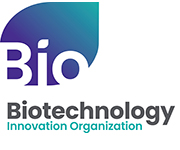Today, the Biotechnology Innovation Organization (BIO), in partnership with the Council of State Bioscience Associations (CSBA), released a new report on the best practices in state bioscience economic development measures, “The U.S. Biosciences Industry in the States: Best Practices in Innovation, Partnerships, and Job Creation.”
 The report, now in its seventh edition, analyzes the latest legislative and regulatory economic development initiatives at the state and regional level that help support the bioscience sector.
The report, now in its seventh edition, analyzes the latest legislative and regulatory economic development initiatives at the state and regional level that help support the bioscience sector.
“At every level of government, public policy has a profound impact on the bioscience ecosystem and its ability to innovate and grow,” said Rachel King, President and CEO of BIO. “This report provides an in-depth guide for how state policymakers can help foster a strong bioscience economy, fuel job creation, and drive an innovative economy in their state.”
The report reviews public policy initiatives in all 50 states and spotlights noteworthy programs that enhance the future of the bioscience industry. In addition to several specific state policy examples, the report identified four national trends that helped retain and grow the bioscience sector at the state level in 2023:
- Building career pathways for future biosciences talent is crucial.
- States and regions are addressing their regulatory climate to ensure predictable and stable regulatory treatment of biosciences firms.
- Utilization of innovative technology-based economic development tax support strategies is on the rise.
- Universities and research centers continue to be strong partners in pre-commercialization research and technology transfer.
“BIO and CSBA’s new report serves as a roadmap for economic development in the biosciences industry, showcasing proven strategies and innovative practices implemented by states across the US,” said John Conrad, Board Vice Chair of CSBA and President and CEO of Illinois Biotechnology Innovation Organization (iBIO). “Illinois, in particular, has made significant strides in implementing economic incentives to drive growth in the state’s bioscience sector, generating high-quality jobs, and fostering an entrepreneurial ecosystem that remains essential to the industry’s future success.”
“This report confirms the vital role U.S. biosciences companies have in creating jobs and stimulating the economy, and illustrates the continuation of the increasingly-supportive role that state and regional policymakers are playing in company retention and expansion in their locations,” said Pete Pellerito, BIO Senior Policy Adviser and principal author of the report.
The full report is available at bio.org/bestpractices.
